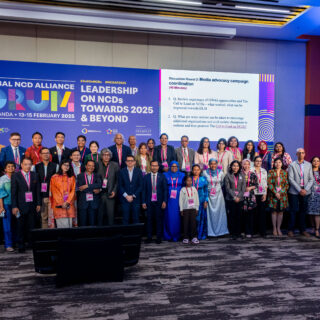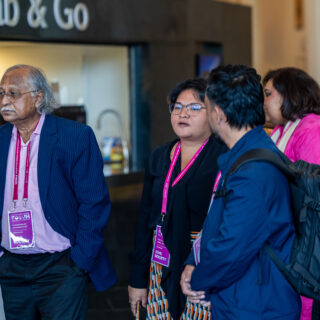
First of all, a big and great congratulation on your recent nominations at the Souss International Short Film Festival and the Festival International de Cinéma Vues d’Afrique. How do you feel about being recognized by African most prestigious event planners?
Being nominated in those film festivals is a great honor, especially considering the fact that I was not even in the film industry two years ago. It was in 2021 that I made my first short film made with a smartphone. It was not even a huge, expensive smartphone. Just an iPhone Six, a phone that costs like $100. It was nothing. And I just made it.
And my first short film… I’m really ashamed to mention this [shamelessly chuckles], my first short film cost me 10,000 BIF… It was like a short film that I made with a little boy, a neighbor, who was like ten years old. I wrote a story about an orphan who was trying to …sorry, I’m going far from the question, but I think it’s interesting to know how I started.
So, I just wrote a story about an Orphan and how he fought through poverty, and I put it out there, and people liked it. And I was like, oh! I made a short film with this budget. If I make even more effort and put in even more money and talent, maybe it could be something great. And here we are, two years later, hanging around Souleymane Sissé, Paul Willow from Zimbabwe, others from Nigeria, and many more!
It’s a huge honor to be able to compete with those great international filmmakers. Having the opportunity to talk to them and exchange our experiences and culture enriched my knowledge of culture. Because if you are rich in culture, your art will also be great!
What inspired you to write, direct and produce “Une vie En couleurs?” (A Colorful Life) What message did you want to convey with this film?
Representation! For me, storytelling is all about representation A story is always important when you tell a story, and the audience can be like, “Oh, that’s me. They are talking about me. They are talking about my experience. I’ve experienced that too.” And that makes your story even more interesting when the audience feels what the character is feeling when the audience recognizes that pain, right? So, for me, it was back in 2020 when I had that idea. It didn’t come as a short film. It didn’t come as a film; it came as a play.
I was like, now we are in the middle of a pandemic, people are locked in their houses, and some people are locked in their houses and fighting cancer. When you suffer from cancer, sometimes they tell you, “You have six months left to live,” You are supposed to enjoy your life for one last time and go out and enjoy the sun, the cloud, and the blue sky. Enjoy your friends and your family for the last time. Hug them, kiss them! I mean, you have six months to live!
But then, instead of doing this, you are locked in your home, which is crazy. That’s sad. And for me, I was like, this story must be told because some people died in their houses fighting diseases other than COVID-19.
While all the eyes and attention were on COVID-19, it was sad for them to be in that position, and nobody cared. Everybody was depressed and locked in their home. And that’s actually what inspired me, representation, being able to give a voice to the voiceless.
Do you have some influences or mentors that have shaped your filmmaking style and approach?
I think that I don’t have a straight and precise mentor. I get some from everywhere. I mean, I have my own taste in cinema. I’m trying to shape my own taste in cinema and say, all right, that’s my style. And when I achieve that level, I will be very proud because that’s actually the whole concept of filmmaking: to be able to tell your stories, not to tell your story in someone’s way. I think you understand it.
But to be able to do that, you have to have some standards, some international standards. Otherwise, if you don’t follow the sellable and commercial standards, your story will be rubbish. And yeah, I think take some lessons from some successful films from Africa, first of all, and then from Europe, the USA, we go to Canada, we go elsewhere. We try to look at some successful drama films and see what works. And then we get inspired. And that’s how we learn, actually.



